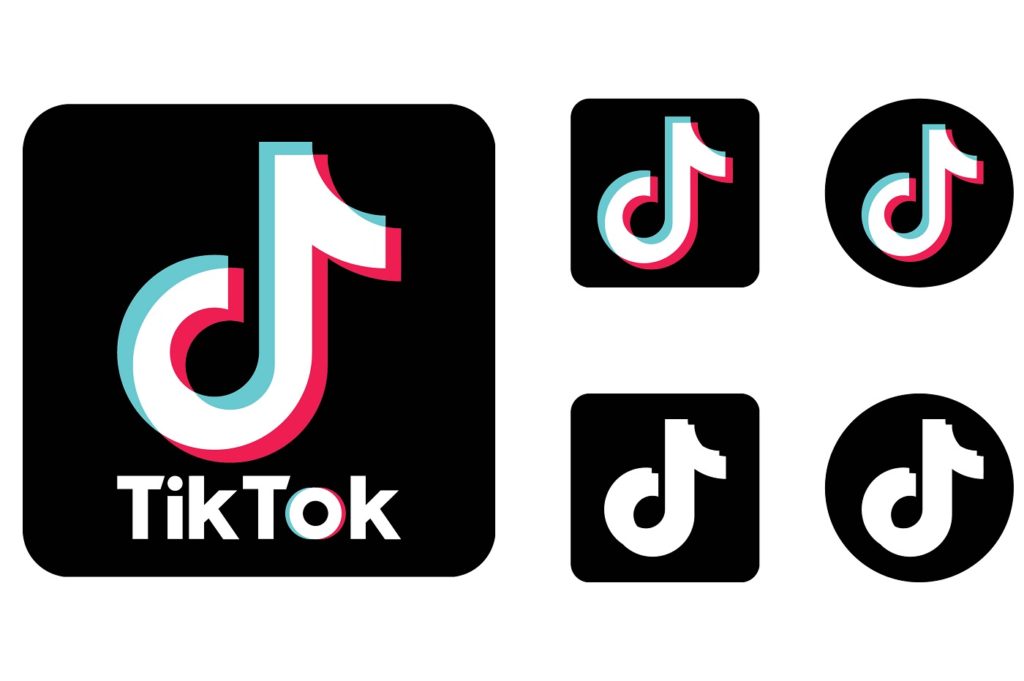On Monday, June 21, the United States Commerce Department opted to rescind executive orders signed by President Trump that had targeted TikTok and WeChat, two of the most popular—and most controversial—apps in the world today. In September of last year, the Trump administration had made a concerted effort to block both of these Chinese-owned apps. Its efforts, however, never came to fruition. Nine months on, is the US Commerce Department’s decision to stop trying to ban these apps a wise one?
Considering the ways in which the Chinese Communist Party (CCP) violates basic human rights, the answer appears to be no. Further, when one realizes that the Chinese government has passed a law ordering big tech companies like Tencent, owner of WeChat, and ByteDance Ltd, owner of TikTok, to share all the data they collect, the Commerce Department’s decision appears to be both misguided and unwise.
Commenting on the recent ruling by the CCP, The Wall Street Journal’s Linling Wei wrote, “The complex new web of laws and regulations around sharing digital records is being driven by the huge growth in data held by China’s tech giants—and a belief that the government should be able to access it.” With this new law, the line between the Chinese government and China’s biggest tech firms has been blurred—if such a line ever existed at all. This technocratic fusion should concern us all.
With this new law, the line between the Chinese government and China’s biggest tech firms has been blurred—if such a line ever existed at all. This technocratic fusion should concern us all.
Start your day with Public Discourse
Sign up and get our daily essays sent straight to your inbox.The CCP Isn’t Just Monitoring Chinese Citizens
In January of this year, the Washington Post reported that lawmakers in California were filing a lawsuit against Tencent, claiming that its messaging app, WeChat, was little more than a tool for censoring and surveilling its users. Although the lawsuit focuses specifically on California users, there is every reason to believe that the CCP is monitoring WeChat users across the land, and around the world.
In a report published last year, the University of Toronto’s Citizen Lab outlined the ways in which the app monitors the conversations of people—even if they happen to be registered with non-China-based cellphone numbers. The data and content of the conversations are then collected and fed into censorship algorithms back home, all in an effort to “invisibly train and build up WeChat’s Chinese political censorship system.” As the authors note, “communications conducted entirely among non-China-registered accounts are subject to pervasive content surveillance that was previously thought to be exclusively reserved for China-registered accounts.”
Rather laughably, after receiving the findings of the Citizen Lab research, Tencent representatives told CNBC that users’ privacy and data security deserve to be respected and protected. They do, but the company is clearly not doing so. Users’ privacy and data are being grossly violated, and little is being done to stop these gross violations. In the aforementioned lawsuit filed against Tencent, the plaintiffs claim that WeChat users have been arbitrarily locked out of their accounts for criticizing the Chinese government. It’s not illogical to ask the following: are the users suing Tencent, all of whom live in the United States, being monitored by Chinese authorities? Given the CCP’s regulations demanding access to Tencent’s users’ data, it seems highly likely.
True freedom allows people to communicate openly and honestly, but open, honest conversations are abhorred by the CCP. Whether these conversations occur in Chengdu or California is beside the point. If they occur on Chinese-backed apps, they will be monitored.
Users who dare to question the CCP face consequences. According to the lawsuit, users in California, many of whom have family in China, are worried about retaliation from the CCP. They fear for their loved ones’ wellbeing. With close to 1.5 million users across America, when people use WeChat, there is every reason to believe that the CCP is listening.
Whether these conversations occur in Chengdu or California is beside the point. If they occur on Chinese-backed apps, they will be monitored.
TikTok’s Collection of Biometric Data
The problems posed by Tencent’s most popular app, although significant, pale in comparison to the problems posed by Tiktok. Another string in the CCP’s censorious bow, with 100 million American users, TikTok is one of the most popular apps in existence today. Known for controversial content, some of which is extremely graphic, TikTok has its critics. The criticisms are warranted, especially when one examines the recent US-based privacy policies introduced by ByteDance, its parent company.
With immediate effect, TikTok will now take two key pieces of biometric data from every single American user: “faceprints” and “voiceprints.” The latter involves collecting important elements of a user’s voice, like resonance, reverberation, intonation, rhythm, and pacing. The former involves the collection of digitally recorded representation of a person’s face.
Why, one wonders, does TikTok, a company with headquarters in Beijing, require this information? The company introduced these new policies at the very same time the CCP called for tech companies to share their data. This, of course, may be nothing but mere coincidence, but one could (and should) be forgiven for thinking otherwise.
The CCP, we’re told, intends to bolster its already sizable biometric database, and TikTok, with almost 700 million users worldwide, would provide the government with an absolute gold mine of highly personal, highly individualized data. Why wouldn’t a repressive regime mine this digital gold?
Opportunities for Espionage and Disinformation
WeChat and TikTok have been accused of siphoning off enormous amounts of data. As the German news site DW reported last year, this data collection “has nothing to do with the actual function” of the apps. The developers of these apps “built back doors” and “spy functions” into their products “from the outset,” taking great care “to ensure that no one would notice.” Furthermore, the likes of WeChat and TikTok fail to provide reasonable explanations for such questionable practices. That’s because none exist.
These apps have a voracious appetite for data, and their appetite, according to the DW report, “grows over time and in tandem” with their successes. Worryingly, when these apps reach “a cool status” and go viral, “the manufacturer can extend the rights.” The user, then, by design, “has to agree to even more.” This is a little more than a compliance tactic, an immoral foot-in-the-door technique designed to lull users into a false sense of comfort.
Furthermore, an app like TikTok, which provides users with highly targeted videos, can be used to disseminate disinformation. According to Kara Frederick, a fellow at the Center for a New American Security, if the CCP wants to use ByteDance to spread propaganda, it can, and it will. TikTok, Frederick warns, can be used to “inject disinformation into the dialogue,” by sowing the seeds of discord, similar to the way Russian bots have amplified controversies in the past. Again, if possible, why wouldn’t a tyrannical regime attempt to do this? The CCP is renowned for many things, but a conscience isn’t necessarily one of them. The atrocities in Xinjiang clearly demonstrate this brutal fact.
The future of warfare will rely heavily on technology, and apps provide the perfect avenues for acts of espionage. Besides TikTok and WeChat, other Chinese-backed apps also appear to be highly problematic in nature. CamScanner, for example, is one of the most popular document scanning apps in the world. With hundreds of millions of users worldwide, many of whom reside in America, the app, we’re told, is “mostly used by teachers, students, white-collar workers, lawyers, and doctors, to name a few.” Researchers at Kaspersky have labeled it “malicious,” warning users that it poses a significant threat to their privacy as well as the content on their devices. Considering that people use this app to scan identity cards, licenses, etc., it’s easy to see the ways in which CamScanner could be weaponized by nefarious actors. As Bernard Meyer, a reporter with Cybernews, wrote, although you might not expect Chinese-backed apps to “scrape and sell your data, plague you with nonstop, malicious ads, redirect you to phishing websites, or even spy on you,” you should.
Another Chinese-backed app, BeautyPlus, has millions of American users. As analysts at Trend Micro have documented, the app is notorious for targeting users with pornographic material, redirecting them to phishing sites, and collecting their personal data.
BeautyPlus also works closely with Facebook, and Meitu, its developer, has a history of collecting user data and selling it. Facebook also has a history of doing something extremely similar with users’ data. In the world of invasive tech, the old birds of a feather proverb carries a great deal of weight, with like very much attracting like.
Will President Biden Respond to This Threat?
Shortly after President Biden revoked and replaced the executive orders issued by the former president, Donald Trump, China’s Ministry of Commerce referred to his decision as a “positive step.” Yes, but a positive step for whom? Not America.
By lowering the security flag, the current administration may very well be exposing tens of millions of Americans to real dangers. As a Reuters report recently noted, the CCP can use an app like TikTok to “track the locations of U.S. government employees, build dossiers of personal information for blackmail and conduct corporate espionage.” But, again, it’s not just government employees. The CCP can do this to all American users. Although the CCP may have very little interest in blackmailing a bus driver in Delaware, it can still use his or her unique vocal and facial characteristics to advance its algorithms. This genuine threat must be addressed immediately.
Last year, India’s prime minister, Narendra Modi, chose to ban TikTok, WeChat and fifty-five other Chinese apps with immediate effect. President Biden has the power to do something similar. The question now, though, is will he?














